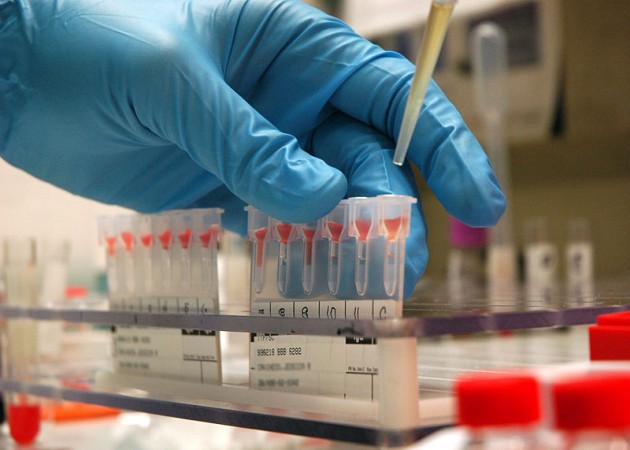
Have you ever wondered if your blood type could affect your health beyond just determining your compatibility for blood transfusions? While the primary function of blood types is related to transfusions and organ transplants, recent research has unveiled intriguing connections between blood types and various aspects of health. From susceptibility to certain diseases to the way your body processes food, your blood type might play a more significant role in your overall well-being than you might have thought. Let's explore the fascinating interplay between blood type and health.
To comprehend the effects of blood type on health, we must first understand the intricacies of blood typing. Blood types are categorized into four main groups: A, B, AB, and O. Each type is determined by the presence or absence of specific antigens on the surface of red blood cells. Additionally, blood types can be Rh-positive (+) or Rh-negative (-), further refining the classification.
Recent research has illuminated the relationship between blood type and susceptibility to certain diseases. Studies have shown that different blood types may confer different levels of vulnerability to various illnesses.
Individuals with blood type O may have a lower risk of heart disease. Some research suggests that the absence of A or B antigens in type O blood might contribute to this advantage. However, this doesn't mean that those with type O blood are immune to heart issues; rather, their risk might be comparatively lower.
The emergence of the COVID-19 pandemic brought attention to the potential connection between blood type and disease susceptibility. Some studies suggested that type A individuals might be more susceptible to severe COVID-19 outcomes. While the link isn't fully understood and genetics play a significant role, this sparked interest in further investigating the influence of blood type on viral infections.
Can your blood type influence the way your body processes different types of food? The blood type diet theory suggests that each blood type's dietary needs are distinct.
According to the blood type diet theory, individuals with type A blood might thrive on a vegetarian or plant-based diet. This is attributed to the belief that type A blood emerged when humans transitioned to an agrarian lifestyle.
Conversely, proponents of the blood type diet theory propose that type O individuals should focus on a high-protein diet. This is based on the idea that type O blood harks back to the hunter-gatherer era, necessitating a protein-rich diet.
The gut microbiome, a community of microorganisms residing in your digestive tract, plays a crucial role in digestion and overall health. Interestingly, your blood type might impact the composition of your gut microbiome.
Research suggests that specific blood types could foster the growth of certain bacterial strains in the gut. This could potentially influence digestion, metabolism, and even the risk of certain diseases.
Apart from its role in health, understanding blood type compatibility is vital for blood transfusions and organ transplants. The compatibility of blood types prevents adverse reactions when a person receives blood or an organ from a donor.
Blood type O negative (O-) is often referred to as the universal blood donor, as it can be safely transfused to individuals of any blood type. On the other hand, AB positive (AB+) is known as the universal recipient, as people with this blood type can receive blood from any other type without adverse reactions.
In addition to the ABO blood group, the Rh factor plays a significant role in compatibility. Rh-positive blood types can receive Rh-negative blood in emergencies, but Rh-negative individuals should ideally receive Rh-negative blood.
Blood type compatibility becomes particularly crucial during pregnancy. If an Rh-negative mother carries an Rh-positive fetus, complications can arise.
If an Rh-negative mother's blood comes into contact with her Rh-positive baby's blood, her immune system might produce antibodies against Rh-positive blood. This could lead to hemolytic disease of the newborn (HDN), a condition where the mother's antibodies attack the baby's red blood cells.
Blood type testing is essential not only for medical procedures but also for understanding potential health risks and dietary considerations.
Before surgeries, blood transfusions, or organ transplants, determining blood type compatibility between the donor and the recipient is crucial to prevent adverse reactions.
Understanding your blood type can offer insights into potential health risks. Armed with this knowledge, you can make informed choices about diet, exercise, and lifestyle.
As scientific understanding deepens, the influence of blood type on health will likely continue to unfold. Researchers are exploring connections between blood type and a range of health factors, from cognitive decline to fertility.
Your blood type is more than just a biological classification; it's a potential key to unlocking insights about your health. While the research is ongoing and our understanding is evolving, it's clear that blood types can offer valuable information about disease susceptibility, dietary preferences, and even the composition of your gut microbiome. As the medical community delves further into these connections, individuals can look forward to more personalized, precise, and effective healthcare strategies.
8 Migraine Prevention Strategies Backed by Science
Things you should "never" eat or drink before a meal
How Much Bamboo Shoot Should You Consume? Unveiling Expert Opinions and Serving Sizes